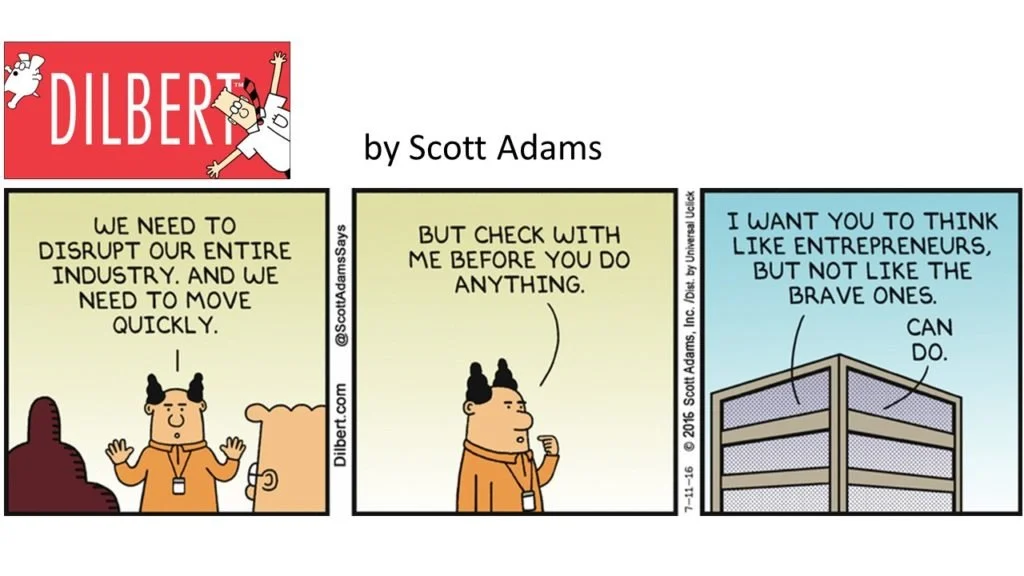"Act like entrepreneurs, but not like the brave ones."
Dilbert - Act Like Entrepreneurs
As the boss from Dilbert says: "I want you to think like entrepreneurs, but not like the brave ones." (dilbert.com, (c) 2016 Scott Adams)
Scott Adams, my friend and former classmate - and a current great mentor and supporter of startups - at UC Berkeley's Haas School of Business, nails it again.
His comic strip Dilbert is spot on when it comes to the manner in which so many corporate pronouncements are handed down and received, and how dysfunctional so many corporate cultures become.
Recent examples of this particular disfunction litter the business landscape. Look at Volkswagen and its diesel engine cover up.
Or Wells Fargo, and – according to its CEO – its "thousands of bad employees" who tried so hard to hit unrealistic sales goals that they started manufacturing phantom bank accounts.
In each instance, leadership of these previously well respected and high-performing organizations headed down the path to do what they thought was right to help them continue to evolve and grow. They made bold pronouncements, laid out aggressive goals and milestones, and got everyone excited and on board.
Employees. Customers, Investors. Partners. So far so good.
But then they got it all wrong. This is where it comes right back to culture. These leaders created and led organizations where success was expected. Up or out. But at a certain point, especially in cultures where delivering bad news was apparently bad news for whoever delivered it, the only way to hit some of these goals was to cheat. At least within the existing set of rules and resources.
And obviously that's just what happened.So should we blame the employees? Perhaps a little bit. But mostly we should place blame where it belongs: on leadership and culture. The employees were just doing what they believe was expected of them. The values and the behaviors that they exhibited were a direct reflection of what they thought management and leadership wanted to see.
Remember the old management axiom: "inspect what you expect."
So the staffers offered up for inspection what they thought leadership expected. Anything else would be a failure.
And therein lies the key.
Going back to our Dilbert punchline, what do real entrepreneurs do in situations like this? Well, in most cases they suffer through a failure or two. But then they learn from those failures. They figure out what they missed or got wrong. They apply a bit of scientific method thinking. And they share their insights with others in the organization. They ask for help. They look outside – including into other sectors – to see how others are solving problems that have characteristics similar to theirs.And they come up with solutions that are different and better. At least in many cases.
That's how "the brave ones" do it!
mc
